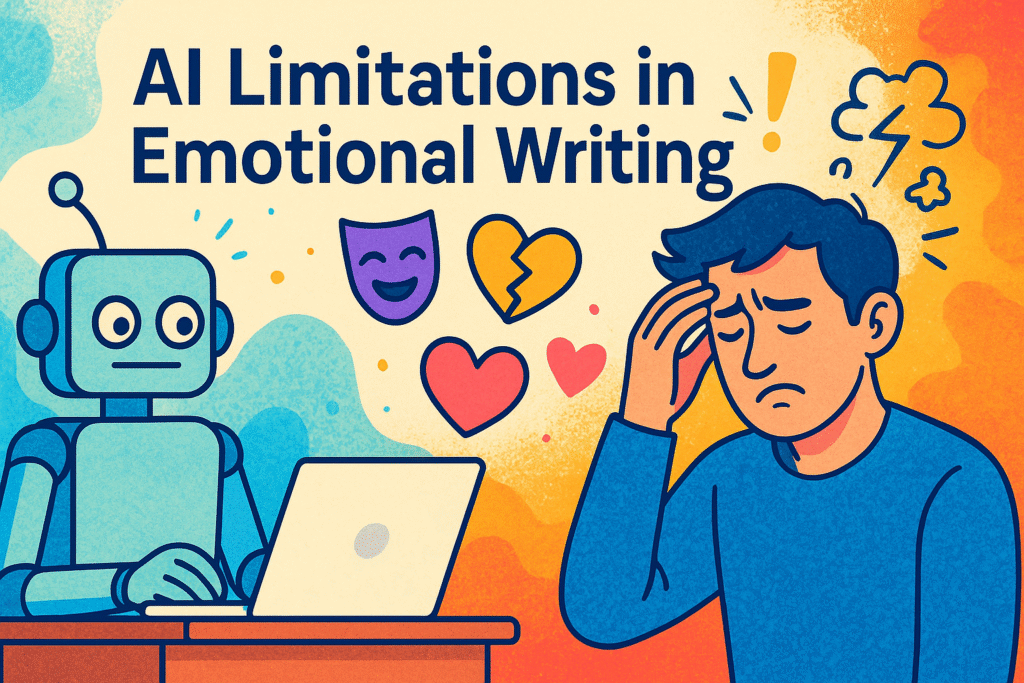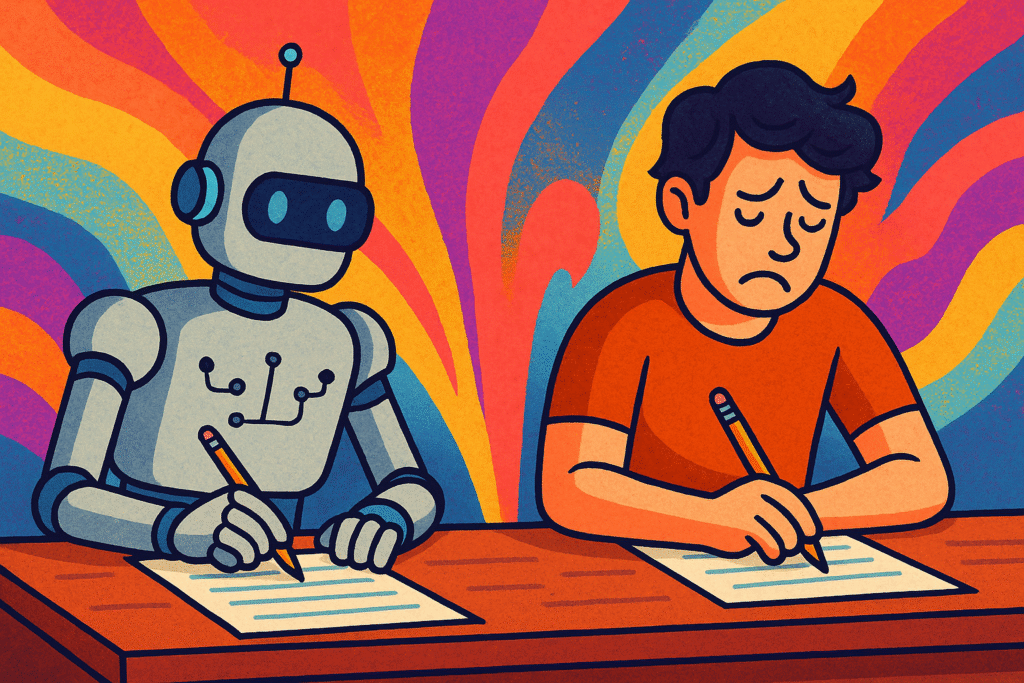In a world increasingly shaped by artificial intelligence, it’s tempting to believe that machines can tackle any creative task. From generating essays to composing poetry, AI tools like ChatGPT, Jasper, and Writesonic have become trusted writing companions. Yet, one thing remains clear: AI limitations in emotional writing, particularly when it comes to humor, irony, and genuine feeling—are still significant.
This gap isn’t just a technical shortfall; it’s a powerful reminder of why human creativity remains essential and irreplaceable.
The Foundation of AI Limitations in Emotional Writing
To understand why AI falters with emotional nuance, it helps to know how AI actually generates language. Tools like GPT-4 are trained on billions of words from books, articles, and conversations. They learn statistical patterns—not meaning, not experience, and certainly not emotion.
So when AI writes something “emotional,” it’s pulling from learned templates. It can sound heartfelt or funny, but it doesn’t know why the joke works—or whether it even is a joke.

Why Humor Still Outsmarts the Machine
Lack of Intent Makes Humor Fall Flat
Humor is one of the most sophisticated forms of communication. It’s intentional, layered, and culturally bound. Yet AI lacks intent—it simply predicts what comes next. Without goals, timing, or context, it mimics humor without getting it.
No Shared Cultural Context
Many jokes rely on shared experiences—memes, slang, cultural references. But AI doesn’t have life experiences or a cultural background. It can’t “read the room,” deliver a punchline with perfect timing, or recognize when it’s crossing a line.
The Results? Often Awkward or Generic
Because of these AI limitations in emotional writing, attempts at humor often feel either too safe or weirdly robotic. It may nail the structure of a joke but miss the spirit completely.
Irony: Where AI Fumbles the Subtle Stuff
Irony requires a shared understanding between speaker and audience. It’s a wink, a twist, a contradiction that’s deeply human. While AI can sometimes recognize overt irony, it usually struggles with anything nuanced.
Take the phrase, “Oh great, another Monday,” said with an eye roll. Humans immediately detect the sarcasm. AI? It may treat that line as sincere praise for Mondays—or hedge its bets in a weirdly neutral tone.
This showcases another form of AI limitations in emotional writing: the inability to read or create subtext.
AI Limitations in Emotional Writing : The Difference Between Real and Rehearsed
Emotional Approximation Isn’t Emotional Depth
AI can write sentences with emotional language—words like “heartbroken” or “ecstatic.” But it lacks the memory, empathy, or life experience that brings real emotion to the page.
A human writing a eulogy may remember their loved one’s voice, quirks, and shared memories. An AI writing a eulogy strings together formal condolences. It’s technically accurate—but emotionally hollow.
This difference is where AI limitations in emotional writing become most obvious.
What Writers Should Take Away from This
Rather than fearing AI, writers should view its emotional blind spots as a strength of their own.
1. Double Down on Human-Only Skills
Invest in the things only humans can do:
- Original voice and tone
- Humor with edge and timing
- Emotion from lived experience
- Irony layered with meaning
These are immune to automation—because they come from being human.
2. Use AI Strategically
Let AI take care of outlines, rephrasing, or SEO suggestions. Then you add the heart. Use your editing pass to inject humor, polish irony, and enrich emotional beats. AI is your tool—not your ghostwriter.
3. Stay Authentic in a Crowded Digital Space
As AI-written content floods the internet, authenticity will stand out. Readers can feel the difference between content that’s crafted versus generated. And they’ll keep coming back to what feels real.
Looking Ahead: Will AI Ever Write with True Emotion?
AI is evolving quickly. It may someday simulate tone and context more effectively. But true emotion isn’t programmable. Real joy, grief, humor, or love come from personal experience—something machines can’t replicate.
Even as tools improve, the core AI limitations in emotional writing will likely remain. Like how photography changed but didn’t erase painting, AI will reshape writing without replacing writers.

Conclusion: AI Limitations in Emotional Writing
AI is powerful—quick, scalable, and useful. But when it comes to humor, irony, and emotion, it still falls short. And that’s not a failure—it’s a reminder that the most compelling writing is, and will always be, human.
So write with feeling. Use AI for structure, not soul. Let your stories, jokes, and truths remind the world that behind every great piece of writing… is a human being.



